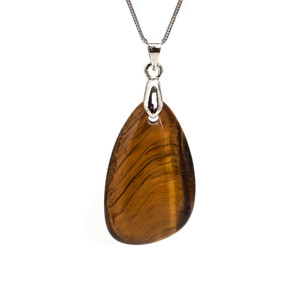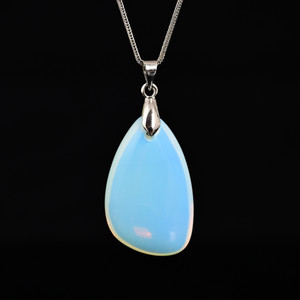
Lapis, Natural, Drop, One Pendant, 30x18mm
Lapis, Natural, Drop, One Pendant, 30x18mm with Metal Alloy Bail
Lapis Lazuli or Lapis for short, is a deep-blue metamorphic rock used as a semi-precious stone that has been prized since antiquity for its intense color. It is beautiful rock; an aggregate of several minerals, mainly lazurite, calcite, and pyrite. Calcite shows up as white streaks or patches within the darker blue or can predominate in the mix, making it a lighter blue shade and almost always lowers the value. But Pyrite inclusions enhances the look and value for many collectors and jewelry lovers.
Lapis is semi-translucent to opaque, with a waxy to glass like luster. The blue colors have been described as indigo, royal, midnight, or marine blue from medium to dark in tone.
The history of Lapis stretches back more than 6,500 years. It was treasured by the ancient civilizations of Mesopotamia, Egypt, China, Greece, and Rome. They valued it for its vivid, exquisite color, and prized it as much as they prized other blue gems like Sapphire and Turquoise.
Worldwide, Lapis is mined in several areas. The traditional source of the finest Lapis is the same today as it was thousands of years ago, the mountains of Afghanistan. Other major sources are Chile and Siberia, Russia. Minor sources are Angola, Canada, Colorado, and Pakistan.
Hardness 5-6
This is a natural stone that has had no treatment other than cutting, drilling, and polishing in China.
Metal Alloy is a metal made by combining two or more metallic elements, base metals, to give greater strength or resistance to corrosion. In mining and economics, base metals refer to industrial non-ferrous metals excluding precious metals, like silver, gold, and platinum. Base Metals include copper, aluminum, nickel, tin, zinc antimony, bismuth, lead and many more. Metal Alloy, also known as Pewter and is usually a tin based alloy 85-95% of the time but could also be zinc based.
In December of 1994, The US Safe Drinking Water Act defined Lead-free as having less than 0.25% lead content. Most newly made solid pewter on the market today is considered lead free by these standards. But it is still recommended to not give children Metal Alloy jewelry if there is any chance, they will put it in their mouths!







